Trains to London: Severn Tunnel electrification problems
- Published
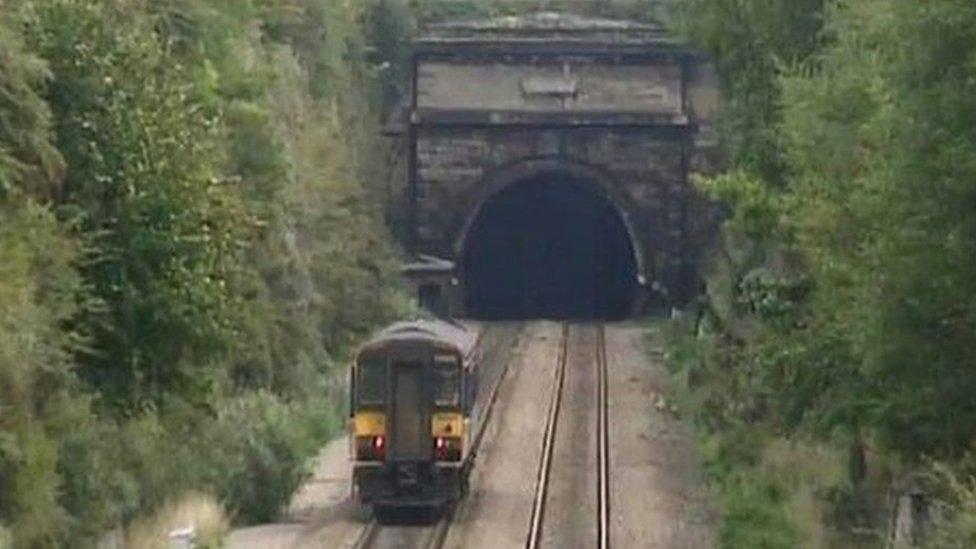
The four-mile Severn Tunnel, which opened in 1886, is the UK's longest main line rail tunnel
Full electrification of the main south Wales to London railway is in doubt as engineers on the £2.8bn project have an "issue" electrifying the Severn Tunnel.
The kit holding electric wires above the track in the four-mile (6km) tunnel is failing because of the salty conditions under the Severn Estuary.
Network Rail has spent three years and what is thought to be close to £20m to prepare the tunnel for electrification.
Specialists in electric rail have been brought in to help solve the issue.
The UK Department for Transport has said it is "aware of an issue within the Severn Tunnel works" and insist Network Rail is currently "carrying out investigations to resolve this as quickly as possible".
Network Rail's chief operating officer Alison Thompson said she is "confident" the first electric train will run between Cardiff and London early in 2020 - after construction and testing takes place this autumn and over Christmas and new year.
The line is already electrified between London Paddington and Bristol Parkway
The 133-year-old tunnel between Wales and England has its own pumping station which brings out an estimated 14 million gallons of water (64 million litres) a day to prevent it being flooded by an underwater spring.
Network Rail conceded it is a "very challenging operating environment to run 25 kilovolts of electric through" but insisted journeys will not be affected because the new multi-million trains that serve the route are diesel and electric hybrids.
Trains travelling into and out of the tunnel will be powered by the overhead wires but they will switch to diesel to travel under the Severn Estuary - so passengers inside will not know the difference.
Stuart Cole, emeritus professor of transport at the University of South Wales, explained the salty conditions were more of an issue because the tunnel is not in the open air.
He added that switching to diesel within the tunnel is not a huge problem, given the length of some passengers' journeys.
"It's not the end of the world if they don't find a solution, but the chances are they will," he told BBC Radio Wales.
Electrification of the south Wales line was supposed to be completed by this year but Network Rail last year said it could not give a precise date because work is still ongoing.
Jordan Davies reports on preparations to shut the Severn Tunnel for six weeks
The difficulties are the latest blow to the project, after delays, teething problems for the new trains and the decision to scrap electrification of the line from Cardiff to Swansea.
Former Prime Minister David Cameron announced the electrification of the Great Western line in 2012 and the tunnel was shut for six weeks in 2016 to start the electrification project.
But in 2018, the then UK transport minister Jo Johnson admitted that electrification equipment in the tunnel had started to deteriorate.
Earth straps - a safety feature on the overhead connectors holding up the power line - were corroding in the salt water environment within months when they are supposed to have a 25-year lifespan, meaning the line through the tunnel could not be electrified safely.
Inside the four-mile-long underwater Severn Tunnel
It means the electrification system within the brickwork tunnel - the longest underwater tunnel in the world for more than 100 years after it opened in 1886 - struggles to maintain voltage and regularly trips.
Network Rail contracted experts from Swiss company Furrer and Frey, specialists in developing power cables inside tunnels, to design a solution but none have so far worked in the salty climate.
Engineers want to electrify the line to carry the new bi-mode Hitachi trains - part of the UK government's £5.7bn train fleet - which entered service in 2017.
"The new intercity electric trains operate in both diesel and electric," said a Network Rail statement.
"Their operation through the tunnel is not affected and we are on course to introduce the new enhanced timetable in December 2019 which is the result of the modernisation and electrification over the last few years.
"The timetable will deliver huge benefits to passengers in south Wales, with reduced journey times of up to 14 minutes to London and significantly increased capacity."
Franchise holders GWR will be operating electric trains through the tunnel and say they are "aware" of Network Rail's upgrade, but insist the works remain on track to allow them to introduce their improved timetable in December.
The Welsh Government said Network Rail had assured them the issue would not affect passengers.
- Published15 June 2019
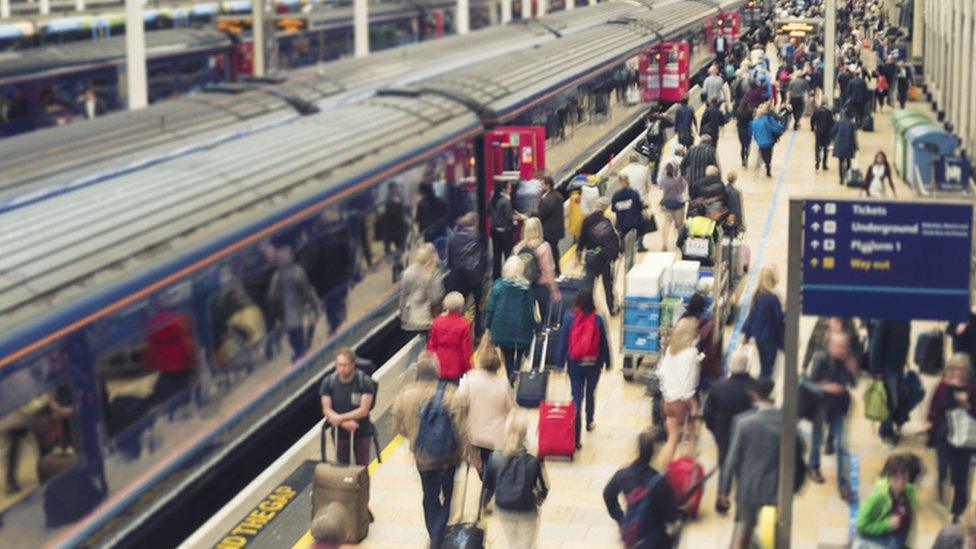
- Published10 April 2019
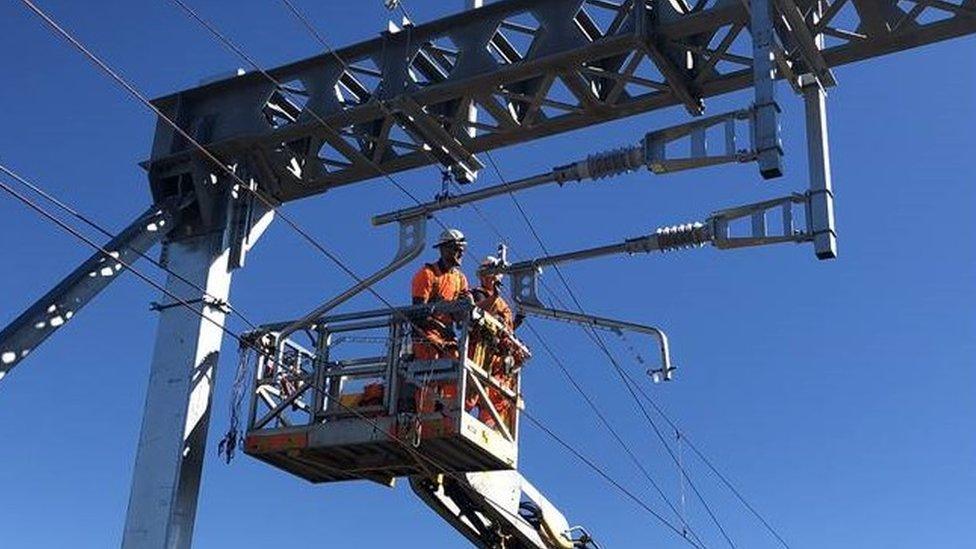
- Published12 July 2018
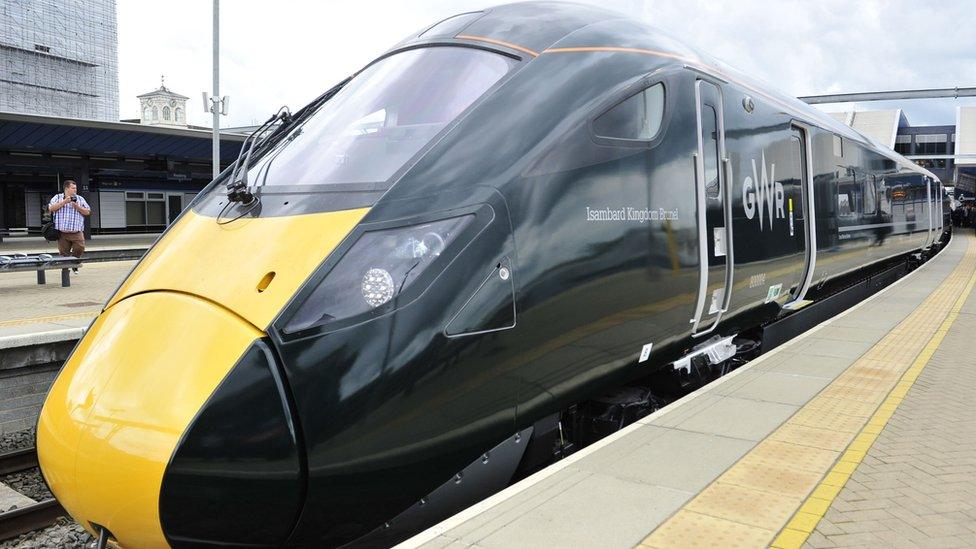
- Published3 July 2018
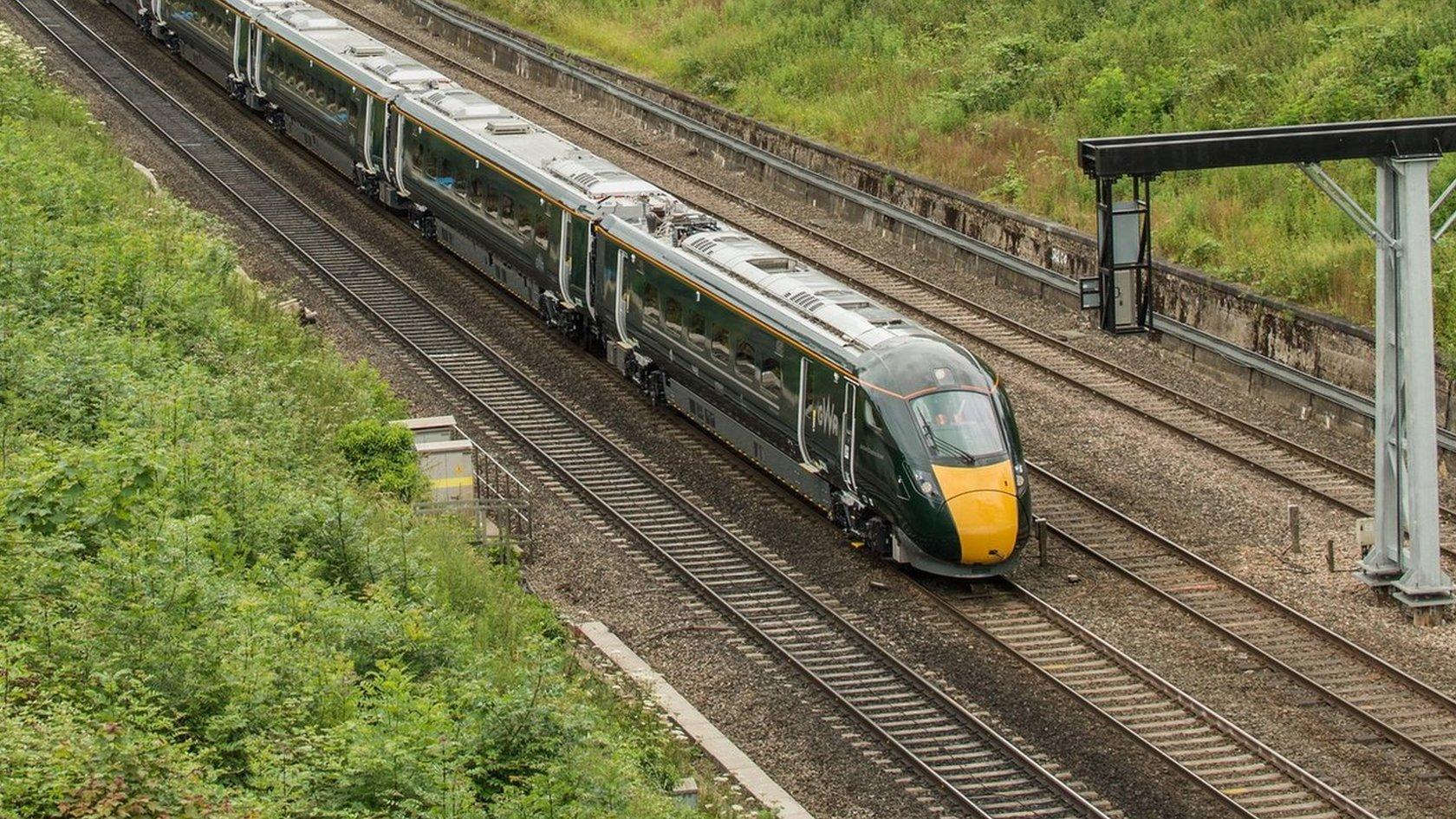
- Published2 July 2018
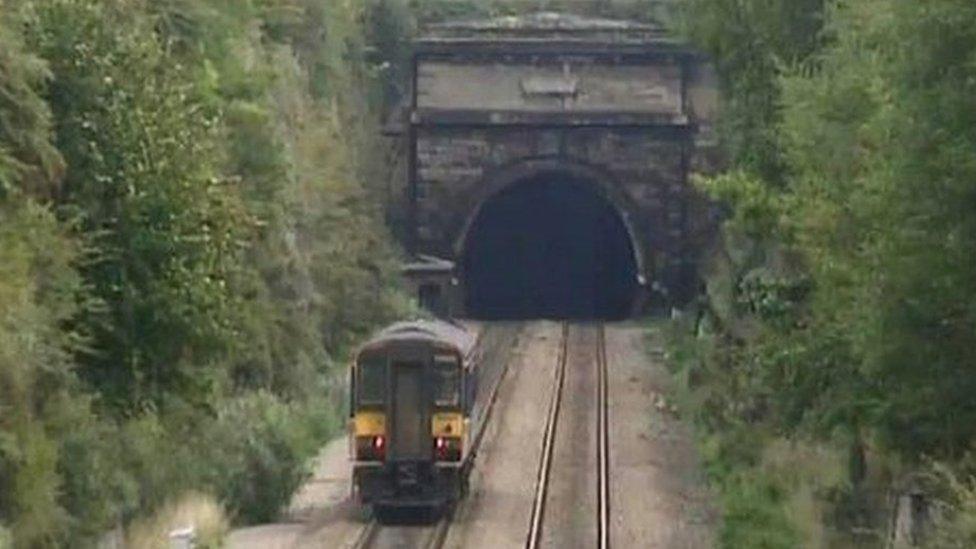
- Published15 June 2018

- Published21 May 2018
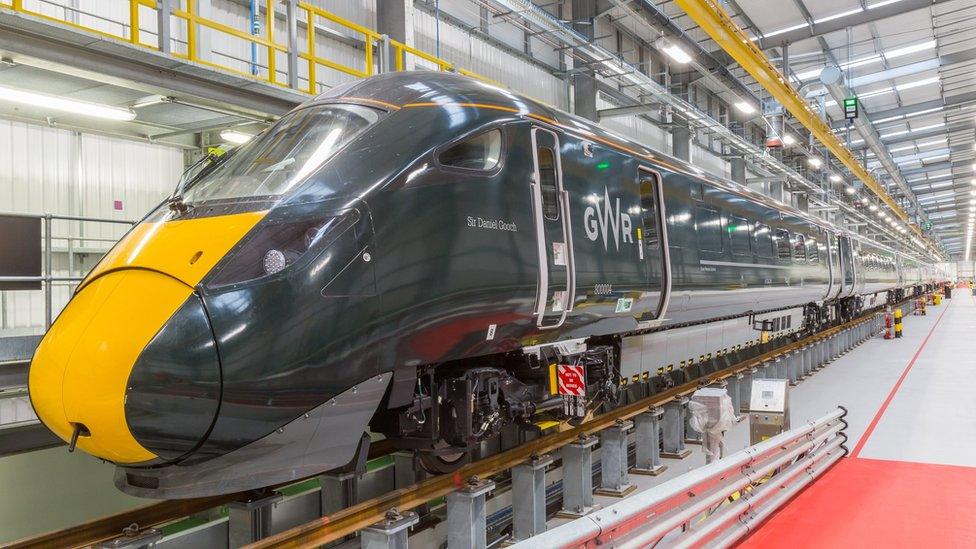
- Published7 March 2018
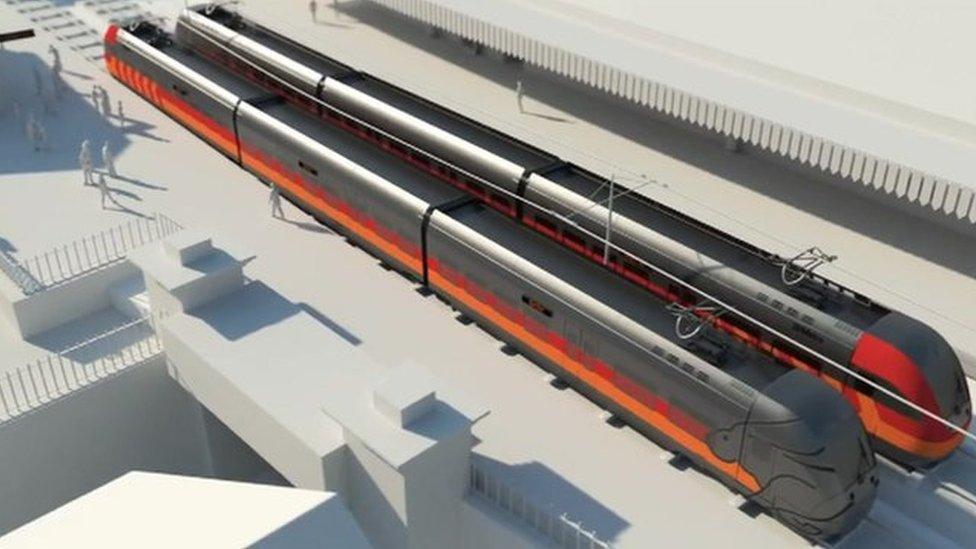
- Published19 April 2018
